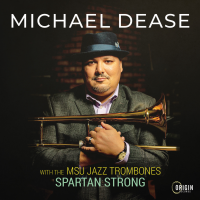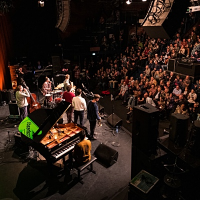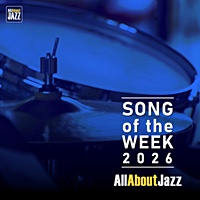Home » Jazz Articles » Miles Davis
Jazz Articles about Miles Davis
Jazz Life: A Journey for Jazz Across America in 1960

by Nenad Georgievski
Jazz Life: A Journey for Jazz Across America in 1960 William Claxton and Joachim E. Berendt 552 ISBN: 3836544687 Taschen 2013 A single photograph can say and convene more than a thousand words. Although music itself can't be photographed, only a handful of photographers ever got closer to pulling it off than photographers such as Herman Leonard, William P. Gottlieb or William Claxton, to name but a few, whose photographs have captured ...
Continue ReadingMiles Davis, Volume 1 and 2 -- Blue Note 1501 and 1502

by Marc Davis
Miles Davis didn't record much for Blue Note Records, just three sessions in three years. So it's odd that the very first two CDs in Blue Note's classic 1500 series--the 100 albums from the 1950s that made Blue Note the top label in hard bop--are from Miles Davis. They're not bad records, but they're not essential Miles Davis. This isn't classic muted Miles, or modal Miles, or Miles with orchestra. And, of course, it's many years before classic ...
Continue ReadingMiles Davis: The Collected Artwork

by Nenad Georgievski
Miles Davis: The Collected Artwork Scott Gutterman 204 ISBN: 978-1608872237 Insight Editions 2013 Few are the musicians in any era that accurately inhabit the word “superstar" in the sense that artist Andy Warhol used it. He defined a “superstar" as a person of style, influence and panache, a figure of endless charisma and on whom one's attention falls and rarely wanders. It could be said with certainty that trumpeter Miles Davis ...
Continue ReadingMiles at the Fillmore - Miles Davis 1970: The Bootleg Series Vol. 3

by Ian Patterson
It would have been inconceivable for Miles Davis in his post-sabbatical, 1980s reincarnation to have been billed as “an extra added attraction" on any festival or concert hall billing, but that's how it was when the trumpeter--already a legend--played his first ever gigs at the Filmore East, supporting Neil Young & Crazy Horse and the Steve Miller Band in March 1970. The initiative to stage Davis at the hallowed rock venue came from CBS President Clive Davis, no doubt with ...
Continue ReadingMiles Davis: Miles at the Fillmore - Miles Davis 1970: The Bootleg Series Vol. 3

by Doug Collette
Intensely intoxicating as much as it is wholly hypnotic, Miles Davis Live at the Fillmore becomes increasingly so through the course of its four compact discs. More than doubling the playing time of the original four-sided vinyl release, The Bootleg Series Vol. 3 posits an argument the band(s) of this era were among the finest ever led by the man with the horn. If that sounds hyperbolic, it's difficult not to rhapsodize about this archive series in general ...
Continue ReadingMiles at the Fillmore - Miles Davis 1970: The Bootleg Series Vol. 3

by Maurizio Comandini
Finalmente la Sony Legacy pubblica ufficialmente e integralmente i quattro concerti del gruppo di Miles Davis al Fillmore East, mitico teatro posto più o meno all'incrocio fra la Sesta Strada Est e la Seconda Avenue a New York, nell'East Village. Era la metà del mese di giugno del 1970, il capolavoro Bitches Brew era stato pubblicato da pochi mesi e il gruppo era in forma straordinaria, a cominciare dal leader. In realtà, questi concerti erano stati immediatamente ...
Continue ReadingMiles Davis: We Want Miles (Bonus Track Version)

by Karl Ackermann
The audaciously titled We Want Miles has one of the more interesting histories in the catalog of trumpeter Miles Davis. Originally released by Columbia Records in 1982, it was not made widely available outside of Japan where it was recorded live in 1981. For those who managed to find it, it was both celebrated and vilified. This new reissue (with additional material) illuminates that debate. We Want Miles was the first live recording of Davis' return to music following a ...
Continue Reading




















